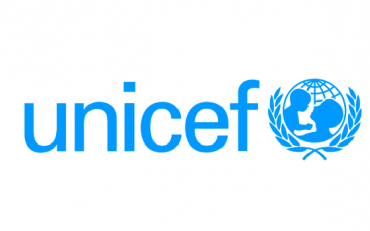Geneva, 1 March 2013 - The Side event, “Inclusive Education for Children with Disabilities: Examples from Central and Eastern Europe and CIS Region”, organized by UNICEF in collaboration with the Governments of Spain and Finland with the support of cosponsors, was held today at the Palais de Nations in the Human Rights Council 22nd session. The aim of the event was to raise the visibility and highlight the results achieved, lessons learnt and future challenges in the field of inclusive education for children with disabilities in the CEE/CIS Region.
The Ministers of Education from Serbia, the Former Yugoslav Republic of Macedonia, and Montenegro presented country experiences. Mr. Patrick Clarke, Past President of Down Syndrome International representing IDA, gave a presentation on how to strengthen engagement among all partners through the effective and full implementation of the Article 24 of the Convention on the Rights of Persons with Disabilities (CRPD). Mr Clarke also underlined that the post-2015 development goals must be based on a human rights framework incorporating non-discrimination and equality in access to education for children with disabilities. He stressed the need to take into account all persons with disabilities and to consult with them. Pre- and in-service teacher training was needed so that they could include and welcome diversity in the classroom. Spain and Thailand strongly supported inclusion of the rights of persons with disabilities, especially to education, in the post-MDG framework.
"Inclusion of students with disabilities is a human rights issue. Article 24 and the entire CRPD exist because of a recognition of pervasive discrimination against persons with disabilities," stressed Mr Patrick Clarke. "Article 4 of the CRPD requires States Parties to consult with and collaborate with DPO's, which includes families of children with disabilities, in all aspects of implementation of the CRPD, from planning of education to legislation, policy and monitoring".
The government representatives on the panel shared experiences of their own journeys in their national contexts on progress achieved and remaining challenges on inclusive education. In each case, the changes were instigated by different stakeholders but the goal was the same: an inclusive education system and better protection of the right to equality of children with disabilities. They highlighted the engagement with parents of children with disabilities in fulfilling their goals, the need for a cross-ministerial approach, and the need for significant investment of resources into pre- and in-service teacher training. Serbia had adopted an intensive, “Big Bang” approach to teacher training and had established an inclusive education network, achieving significant gains but also recognizing the need for continued support and troubleshooting. FYR Macedonia had a systemic approach with general involvement of all stakeholders and parent support via parent resource centers. In Montenegro, a government decision to change public awareness via a public campaign had worked. Montenegro had turned special schools into resource centers to support inclusion in regular schools. Overall, the event achieved its objectives with commitments from some governments to increase sharing of experience and partnership in the future.
The side event had interpretation into International Sign. The video from the event and presentation materials will be available on the UNICEF CEE/CIS website.
Contact us at: info [at] ida-secretariat.org
Website: www.internationaldisabilityalliance.org
Facebook: http://www.facebook.com/InternationalDisabilityAllianceIDA
Twitter: http://twitter.com/IDA_CRPD_Forum
Archive: http://test-ida2.pantheonsite.io/sites/default/files/migrated/IDA%20Pres...

